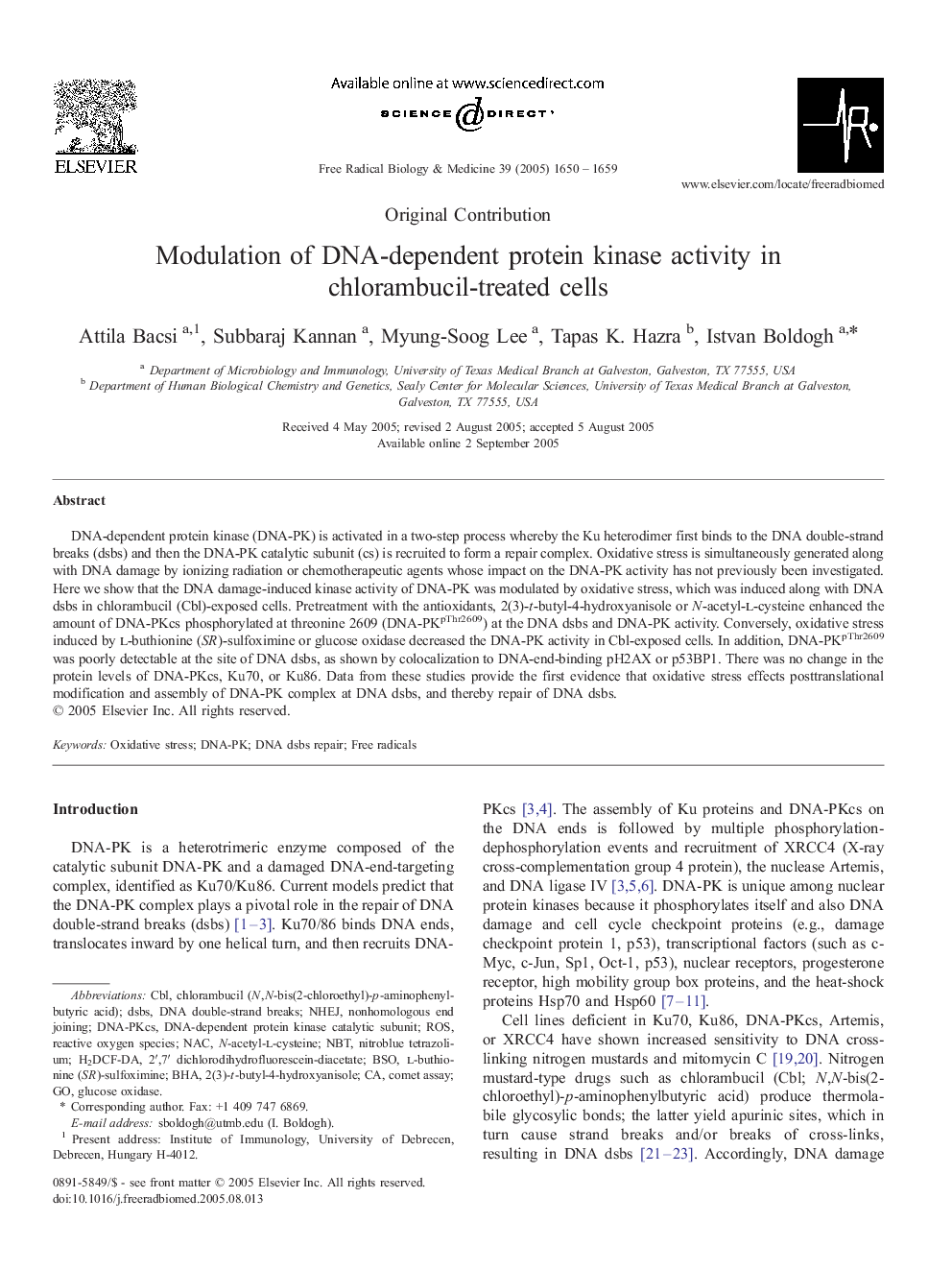| Article ID | Journal | Published Year | Pages | File Type |
|---|---|---|---|---|
| 10739382 | Free Radical Biology and Medicine | 2005 | 10 Pages |
Abstract
DNA-dependent protein kinase (DNA-PK) is activated in a two-step process whereby the Ku heterodimer first binds to the DNA double-strand breaks (dsbs) and then the DNA-PK catalytic subunit (cs) is recruited to form a repair complex. Oxidative stress is simultaneously generated along with DNA damage by ionizing radiation or chemotherapeutic agents whose impact on the DNA-PK activity has not previously been investigated. Here we show that the DNA damage-induced kinase activity of DNA-PK was modulated by oxidative stress, which was induced along with DNA dsbs in chlorambucil (Cbl)-exposed cells. Pretreatment with the antioxidants, 2(3)-t-butyl-4-hydroxyanisole or N-acetyl-l-cysteine enhanced the amount of DNA-PKcs phosphorylated at threonine 2609 (DNA-PKpThr2609) at the DNA dsbs and DNA-PK activity. Conversely, oxidative stress induced by l-buthionine (SR)-sulfoximine or glucose oxidase decreased the DNA-PK activity in Cbl-exposed cells. In addition, DNA-PKpThr2609 was poorly detectable at the site of DNA dsbs, as shown by colocalization to DNA-end-binding pH2AX or p53BP1. There was no change in the protein levels of DNA-PKcs, Ku70, or Ku86. Data from these studies provide the first evidence that oxidative stress effects posttranslational modification and assembly of DNA-PK complex at DNA dsbs, and thereby repair of DNA dsbs.
Keywords
Related Topics
Life Sciences
Biochemistry, Genetics and Molecular Biology
Ageing
Authors
Attila Bacsi, Subbaraj Kannan, Myung-Soog Lee, Tapas K. Hazra, Istvan Boldogh,
